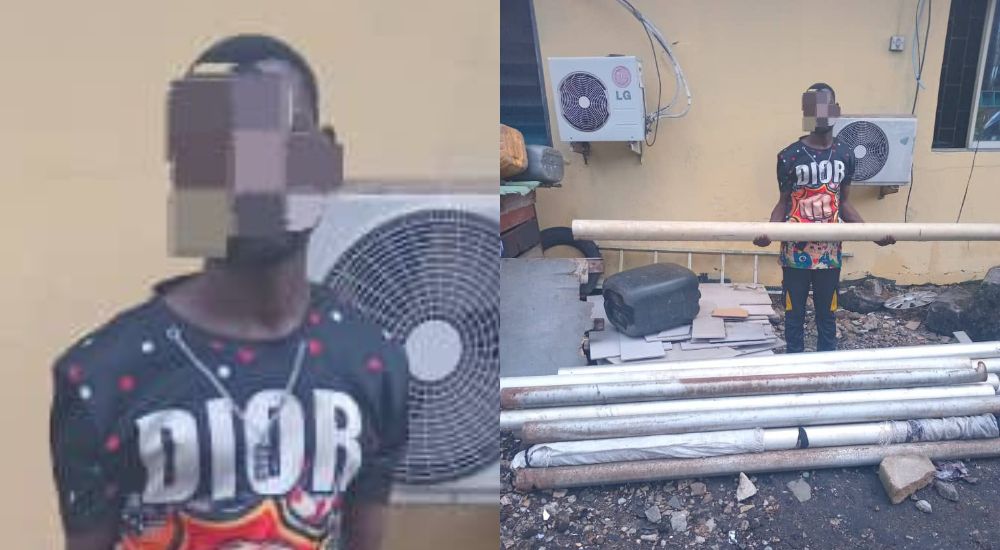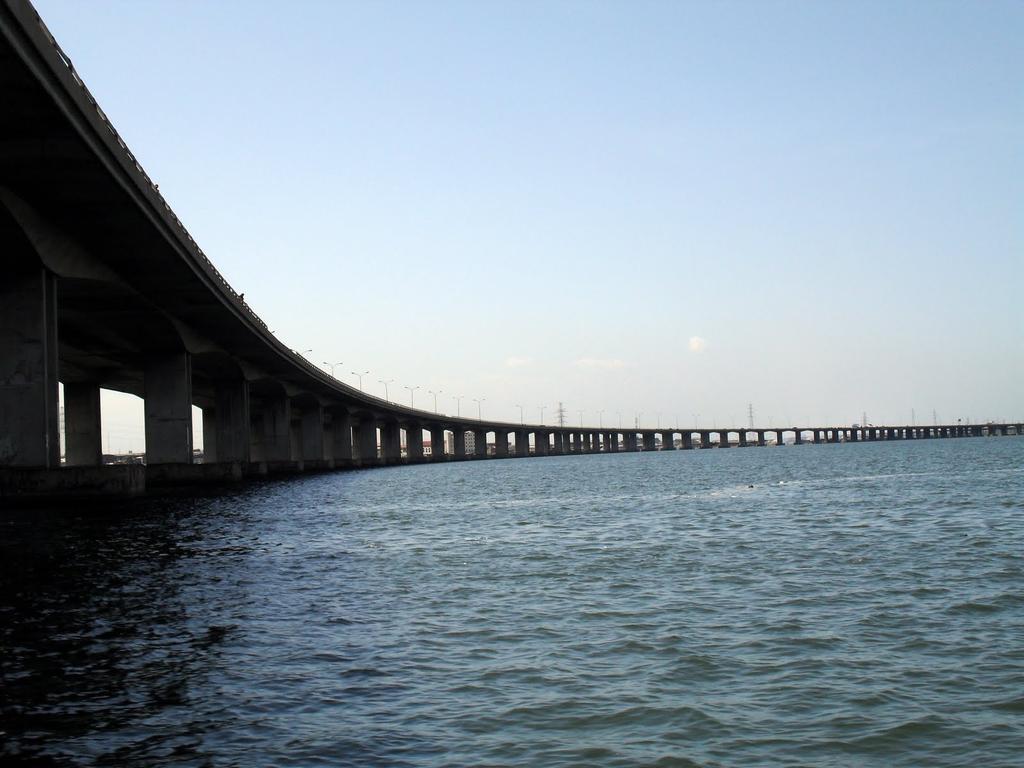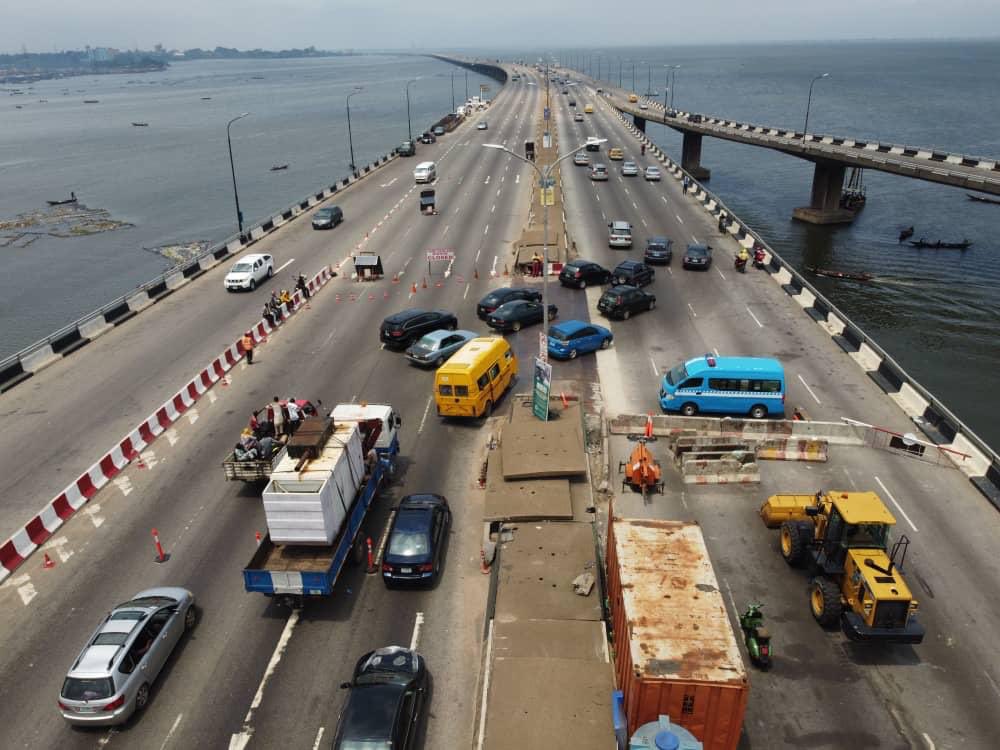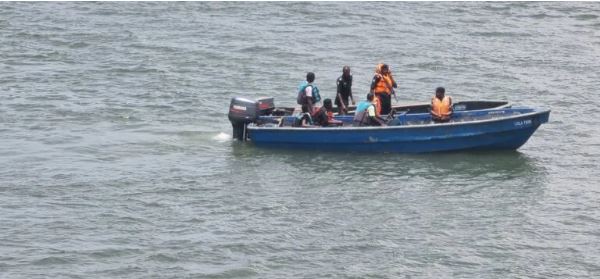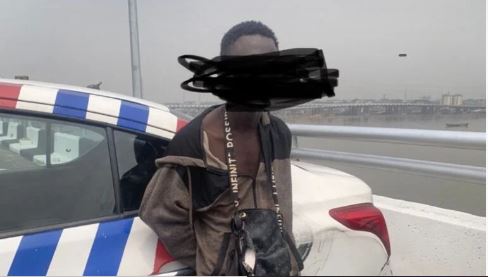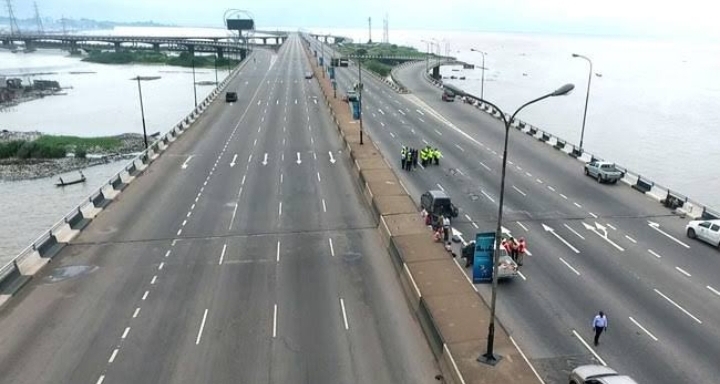On April 4, 2024, residents of Lagos, Nigeria’s bustling commercial hub, breathed a collective sigh of relief. The pivotal bridge connecting Lagos Island to the mainland, spanning the expansive body of water known as the lagoon, reopened to traffic after undergoing extensive repairs. For the preceding six months, Lagosians endured arduous commutes amidst congested traffic gridlock while the bridge underwent maintenance.
This rehabilitation initiative, commenced by the Federal Ministry of Works on November 6, 2023, targeted the 11.3-kilometer-long bridge, famously dubbed the 3rd Mainland Bridge. Its completion marked a significant milestone, alleviating the commuting woes that plagued motorists and residents of lagos for half a year.
Coincidentally, the decision to overhaul the bridge aligns with President Bola Tinubu’s assumption of political leadership on May 29, 2023. As it would be recalled in the cause of his innauguration, he opted to terminate subsidies on petrol and abolish the dual foreign exchange system, which he identified as hindrances to Nigeria’s development.
Much like the extensive repairs undertaken on the 3rd Mainland Bridge, Nigeria’s ongoing socioeconomic reforms, spearheaded by President Tinubu, which are deemed essential for the nation’s progress have triggered severe hardships for Nigerians. Despite the undeniable hardships these reforms have imposed on the populace, akin to the inconveniences faced by Lagosians during the 3rd mainland bridge’s rehabilitation, president Tinubu perceives them as inevitable and crucial for Nigeria’s long-term stability and growth.
Remarkably, his departure from conventional economic policies, epitomized by the removal of subsidies on petrol and the naira, signifies a commitment to confronting challenges head-on. This proactive approach reflects a departure from the status quo, where leaders often prioritize short-term fixes over addressing underlying structural challenges.
Before delving deeper into the matter, it’s pertinent to contextualize this analogy between the 3rd Mainland Bridge and President Tinubu’s development agenda for Nigeria. This comparison underscores the parallel between the physical refurbishment of infrastructure and the systemic reforms aimed at rectifying deep-rooted socioeconomic imbalances in our country.
The crux of the matter is this: President Tinubu assumed office on May 29, 2023, and he immediately recognized Nigeria’s dire situation, as the economy was teetering on the edge of collapse, and decided that drastic reforms were imperative, akin to a surgical operation, to pull the nation back from the brink. Consequently, he implemented the difficult reforms, effectively placing the country in an Intensive Care Unit (ICU), a critical care section in a hospital where doctors attend to severely ill patients.
Similarly, upon his appointment by president Tinubu, Works Minister Engineer Dave Umahi acknowledged the severe dilapidation of the 3rd Mainland Bridge. Understanding the potential for massive loss of life if the bridge were to collapse, given that it was constructed 34 years prior in 1990, Umahi made the tough decision not just to give it a facelift but to put the bridge through serious structural rehabilitation. This was essential to ensure the safety of Lagosians and improve transport infrastructure for enhanced mobility, despite the inconvenience it caused.
In the light of the above , the metaphor of 3rd mainland bridge rehabilitation for president Tinubu’s agenda of transforming Nigeria lies in the parallel between President Tinubu’s efforts to completely overhaul Nigeria with a view to resetting the country and Minister Umahi’s initiative to refurbish the 3rd Mainland Bridge in a fundamental way. While these decisions initially caused hardship for Nigerians, they hold long-term benefits. Already, after six (6) months of hardships arising from the closure of the bridge,Lagosians are reaping the rewards of the bridge’s rehabilitation as the perennial traffic gridlock synonimous with 3rd mainland bridge has dissappeared. Arising from the above, the initial disruptions and pains that the repairs caused motorists have become like the pains experienced by women during child birth which are easily forgotten when the baby has been safely delivered .
The hope is that President Tinubu’s painful yet necessary socioeconomic reforms will yield results as positive as the euphoria surrounding the reopening of the 3rd Mainland Bridge on April 4, 2024.
However, as economists must admit,transforming a severely damaged economy is no mean task. If nothing else,it requires a longer gestation period due to bureaucratic processes associated with governance. Hence even as it took six (6) months for 3rd mainland bridge (a spec on the myriads of challenges besetting Nigeria) to be delivered, it would take much longer for the impact of Tinubu’s reform policies to fully manifest. Particularly, from the initial pains to joy as was the case with the 3rd mainland bridge. So, it would be unjust to expect the rejuvenation of a nearly collapsed economy after just one year of his four )4) years tenure.
Without a doubt, previous administrations were aware of the 3rd Mainland Bridge’s deteriorating condition but opted for temporary fixes to avoid inconveniencing Lagosians. This neglect exposed millions of commuters to the imminent danger of a collapse. Similarly, past leaders hesitated to address the unsustainable practice of subsidizing petrol pump price and multiple exchange rate of the naira , fearing the repercussions of ending it.
It bears repeating that the rehabilitation of the 3rd Mainland Bridge serves as a metaphor for Nigeria’s economy simply because President Tinubu’s efforts mirror the transformation of the bridge from a hazardous thoroughfare to a symbol of dramatic change. Just as the bridge now stands as a testament to transformative infrastructure development, l would argue that Tinubu aims to fortify Nigeria’s economy into a more resilient and prosperous entity, akin to the newfound safety and convenience experienced by motorists in Lagos.
The assertion above is underscored by the widely-held belief among Nigerians that our beloved country was teetering on the brink of becoming a failed state during the previous administration. It wasn’t until the incumbent president, Asiwaju Bola Tinubu, assumed office barely one year ago that there was a shift in governance style focused more on taking the bull by the horns by boldly introducing policies that would provide long term solutions to our country’s myriads of challenges.
This sentiment was succinctly captured by the current governor of Anambra State and former Central Bank of Nigeria governor, Prof. Chukwuma Soludo, who aptly described the state of the Nigerian economy inherited by President Tinubu on May 29th last year as a ‘Dead Horse Walking’. In essence, Governor Soludo, who should know by virtue of being ex CBN governor affirmed that Nigeria was on the verge of failure before President Tinubu took office.
It’s disheartening to note that many of those now expressing opposition to incumbent president’s reform policies had perhaps hoped for a continuation of the previous administration’s attempts to patch up the ailing economy. However, President Tinubu recognized the need for radical change rather than merely tinkering around the edges.
Mr President’s decision to tackle the root causes of Nigeria’s challenges, such as unsustainable subsidies, signifies a departure from the ineffective strategies of past administrations. This bold approach aims to transform the nation’s narrative for the better by addressing underlying issues head-on.
Analogous to Minister Umahi’s decisive action in fundamentally repairing the 3rd Mainland Bridge to avert its collapse, President Tinubu’s commitment to ending subsidies on petrol and the naira signifies a resolve to renew hope for Nigerians. This entails enduring short-term inconveniences for long-term gains, akin to the repairs on the bridge.
Even critics of the administration can not deny that the successful renovation of the 3rd Mainland Bridge stands as a testament to President Tinubu’s reform policies, which have alleviated the plight of motorists. Other measures include redirecting more funds to states for rural development, introducing Compressed Natural Gas,CNG to reduce transportation costs via mass transit buses, launching of the Renewed Hope housing project across cities nationwide, commencing the coastal road from Lagos to Calabar to spur job creation and faciliate the harnessing of the blue economy, and implementing a student loans program to enhance access to higher education for the indigent ones thereby boosting the poll of skilled workforce in our economy . These initiatives collectively aim to revitalize the nation and uplift its citizens. But to attain the lofty goals Nigerians have to endure the pains of being weaned of their enjoyment of subsidy on consumption. It is unsurprising that arising from the withdrawal of subsidies on petrol and the naira which have had far reaching negative effects on living standards of a criitical mass of Nigerians, some of us have been suffering from what is generally known as witdrawal syndrome which is commonly manifested by those addicted to cigarettes at the initial stage of being denied access to nicothine.
With consistency and discipline of denying oneself of the pleaure or luxury, an addict can be cured of the desease for good.
Certainly, there are numerous Nigerians who don’t share the optimism conveyed in this intervention regarding the brighter future that awaits them if president Tinubu pulls off the hat trick of transforming Nigeria as it were . The negative sentiment most likely stems from their experience of the hardships caused by the ongoing socio-economic reforms, leaving them understandably frustrated and angry. It is justifiable to empathize with such skepticism and frustration, given that it’s largely fueled by the disappointments from unfulfilled promises made by previous administrations.
It is not rocket science to figure out a clear pattern of policy reversals contributing to the prevailing cynicism. Reflecting on a few notable instances sheds light on this. One such case is Vision 2020, which presented ambitious life-altering plans, instilling hope for Nigeria’s transformation by 2020. However, these lofty aspirations remain unrealized to date, primarily due to successive administrations’ failure to execute the proposed initiatives.
With President Tinubu’s first year anniversary holding on May 29, marking one-quarter of his four-year term, I urge Nigerians not to allow the past to shape their assesment of his promises and actions so far. Rather l implore them to grant his administration a grace period of another twelve months for his policies to mature. Let’s observe if the seeds of development that he has planted over the past year will yield tangible results, providing relief akin to the reopening of the Third Mainland Bridge in Lagos.
One is making the plea considering that one year in office represents only 25% of President Tinubu’s four (4) years tenure. Just as a student enrolled in a four-year degree program wouldn’t be expected to sit for their final exams after the first year, we cannot fully assess an administration’s performance based on such a short timeframe.
Currently, one ingredient that we’re lacking in the polity is patience-a crucial component for maintaining social unity. To cultivate this patience, the government should foster optimism for a better tomorrow by actively involving the public in its initiatives and policies, and ensuring its dedication to safeguarding the welfare of the marginalized within society. There have always been two choices open to Nigerians. These are the option of permanent regret or of temporay pain.
For two long our compatriots have been wallowing in regret having been used to remaining in our comfort zones than to bear the intial pains that would usher us into a more stable and properous future. In the focus group meetings that l have had with Nigerians in the different strata of society, there is a feeling that the masses are not being carried along in the programs and policies of government.
If Nigerians believe that they are an intergral part of the decision to move away from subsidy on consumption regime reflected by the age long petrol and naira subsidy to the new era of subsidy on production such as the recently introduced loan for university and polythenic students, they would buy into the agenda of government without much ado.
That is why one is advocating that it is time for government to carry the masses along in governance.
The transformation of the 3rd mainland bridge in lagos is a proof of concept that positive change from decadence to growth, progress and prosperity for Nigeria and indeed Nigerians can happen when a visionary and bold leader is in charge.
Magnus Onyibe,an entrepreneur,public policy analyst ,author,democracy advocate,development strategist,alumnus of Fletcher School of Law and Diplomacy,Tufts University, Massachusetts,USA and a former commissioner in Delta state government, sent this piece from Lagos, Nigeria.
To continue with this conversation and more ,please visit www.magnum.ng
